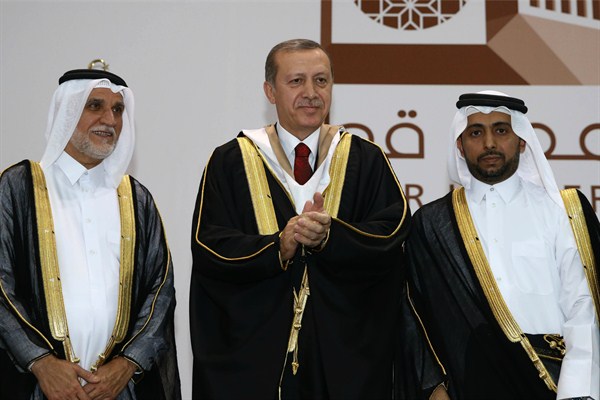During Turkish President Recep Tayyip Erdogan’s visit to Qatar in early December, Ankara and Doha signed a memorandum of understanding for the long-term trade of liquefied natural gas. While a final agreement has yet to be completed, it was still a significant step for gas-dependent Turkey, which is trying to diversify its sources of imported natural gas and reduce its reliance on Russia, which accounted for 57 percent of Turkey’s gas imports in 2013. With ties fraying between Ankara and Moscow after Turkey shot down a Russian fighter jet along the Turkish-Syrian border in November, raising the possibility of Russia punitively limiting its gas exports to Turkey, the Qatar deal is no small feat, especially since Doha pledged to meet any Russian shortfall.
The agreement also adds a new dimension to Turkey’s quest to buy more gas from its neighbor, Iran, which has been Turkey’s second-largest source of imported gas—about 20 percent in 2013—but also its most expensive, at $487 per 1,000 cubic meters. With its huge but underdeveloped gas reserves, Iran has been eyed by Ankara as the ideal diversification option next door.
The Turkish government and energy industry hoped that the nuclear deal between Iran and six world powers struck earlier this year would bring prices down, as an influx of investment into Iran’s South Pars gas field and the eventual lifting of sanctions would ramp up Iranian production. But Syria’s civil war has interrupted those plans, as Turkey and Iran find themselves on opposing sides of a proxy war ratcheted up with Russia’s intervention.

